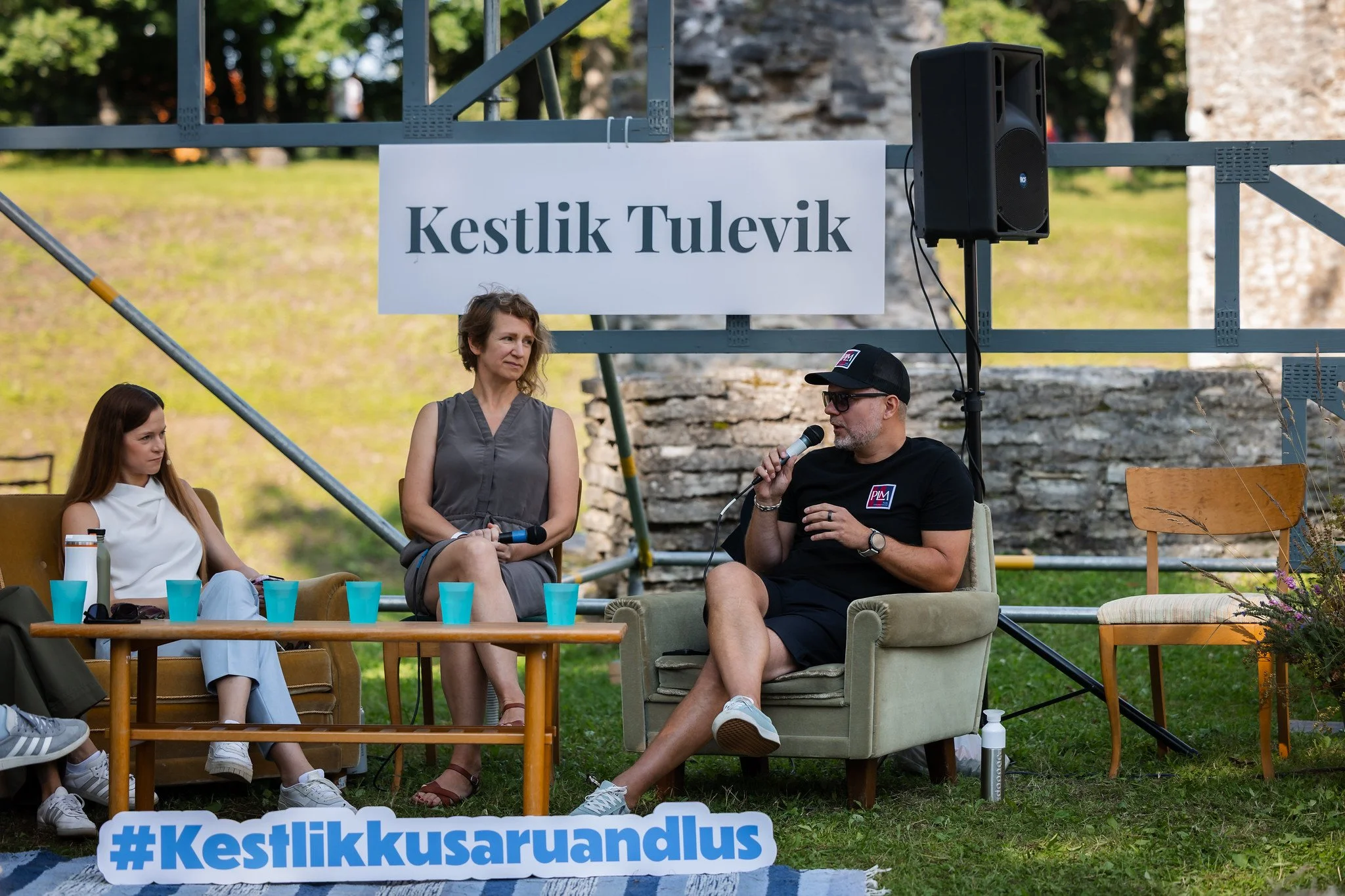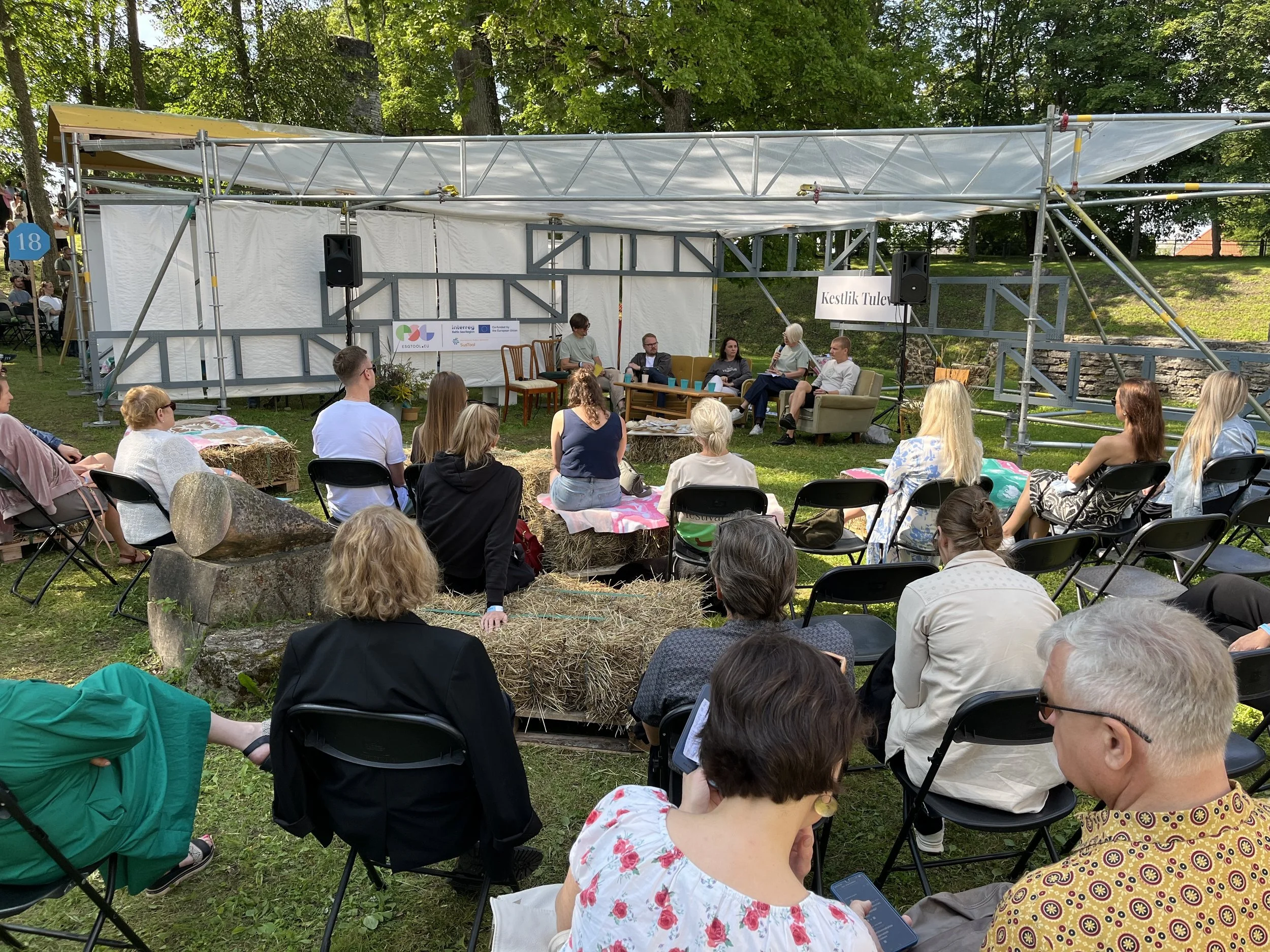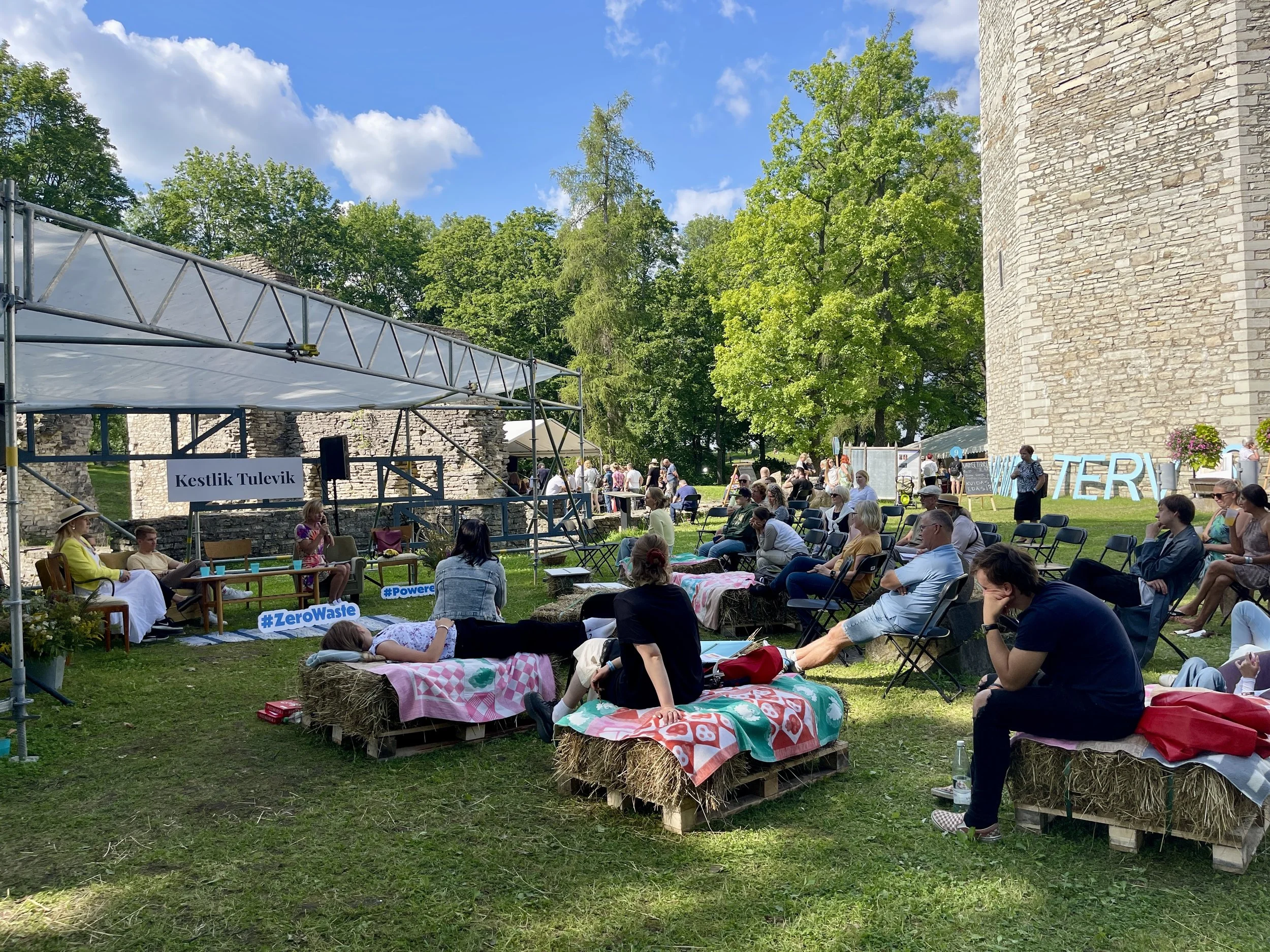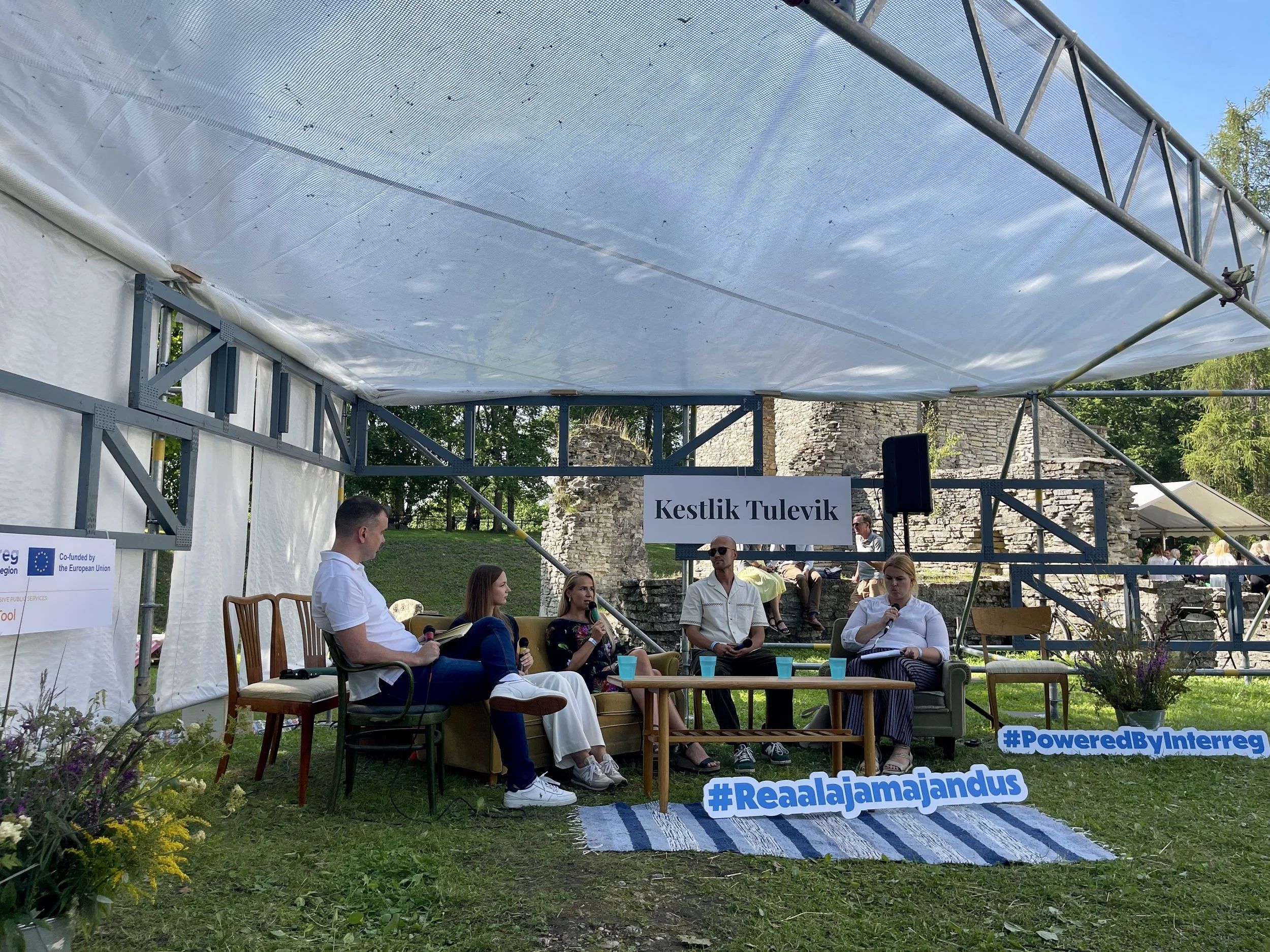Exploring Sustainable Futures at the Opinion Festival
At the Opinion Festival 2025, we had the pleasure of co-creating the Sustainable Futures discussions in collaboration with the Ministry of Finance, Zero Waste Estonia, the Ministry of Economic Affairs and Communications, and the Estonian Association of Information Technology and Telecommunications (ITL). The discussions highlighted the practical challenges and opportunities of building a sustainable economy in Estonia.
Is Sustainability Reporting a Tool or a Burden?
Sustainability reporting is becoming an essential part of business, but is it truly valuable or just another bureaucratic task? A discussion organised by the Ministry of Finance explored this question.
Audience insights suggested that when done thoughtfully, sustainability reporting can be a competitive advantage. Reports should help companies reflect on past performance and guide future strategies. Participants also noted that ESG standards must go beyond environmental metrics to include ethics, social responsibility, and governance. However, reporting alone does not drive change — action plans and strategies do.
In Estonia, around 400 larger companies exist, but only a fraction engage in sustainability reporting, either voluntarily or due to mandatory requirements. While regulation encourages action, overly complex requirements can frustrate companies and hinder participation. Done right, reporting builds trust and accountability; done poorly, it risks becoming a “checkbox” exercise.
Author: Opinion Festival
If the Only Future Is Circular, Will Our Businesses Survive Tomorrow?
With the HI team, we put together a discussion on the circular economy and its role in shaping the future of entrepreneurship. The circular economy is much more than a waste management issue. It’s a holistic approach that touches on business models, design, policy-making, and consumer behaviour. By mirroring nature’s logic – where there is no waste, only materials reused or repurposed – companies can design products and services that are easier to repair, disassemble, and recycle. This is not only ecologically responsible but also economically sensible, as poorly managed waste can make production more expensive.
Sustainable practices can be economically beneficial. For example, Green Gravels’ glass foam aggregate, used in road construction and buildings, demonstrates how secondary materials can drive innovation and growth.
Participants also emphasised the roles of consumers and the state. Many individuals contribute to the circular economy through waste sorting or avoiding single-use products, but awareness remains low. The state can further support this transition by removing barriers and incentivising sustainable business practices, helping innovative solutions reach the market faster. Circularity is not a brake on business – it’s an engine for new opportunities.
Author: HI advisory
Waste is the result, but what’s the cause?
Zero Waste Estonia led a session on whether waste is a personal failure or a systemic problem. The discussion focused on local government roles, household sorting confusion, and textile recycling. Producer responsibility systems also play a key role – if waste is sorted correctly, manufacturers cover disposal costs. Words matter too: calling facilities “recycling stations” (ringlusjaam) rather than “waste stations” encourages participation. Ultimately, reducing waste requires addressing consumption, production, and systemic inefficiencies.
Author: ITL
Data as a Driver of Sustainability
A discussion organised by the Ministry of Economic Affairs and Communications explored how data can support sustainable business practices. High-quality, usable data enables smarter decisions, from fleet management to energy efficiency. Current reporting obligations are often duplicative, but efforts are underway to standardise data and automate submissions, easing the burden on businesses.
Intelligent use of data – combined with public-private collaboration and clear sustainability requirements in procurement – can turn reporting from a chore into a practical tool for change.
Author: ITL
The Sustainable Futures discussions at the Opinion Festival made one thing clear: sustainability is most effective when knowledge, tools, and responsibilities are shared across businesses, citizens, and the state. Whether through reporting, circular practices, waste management, or data-driven solutions, collaboration is key to creating a sustainable and prosperous future for Estonia.





